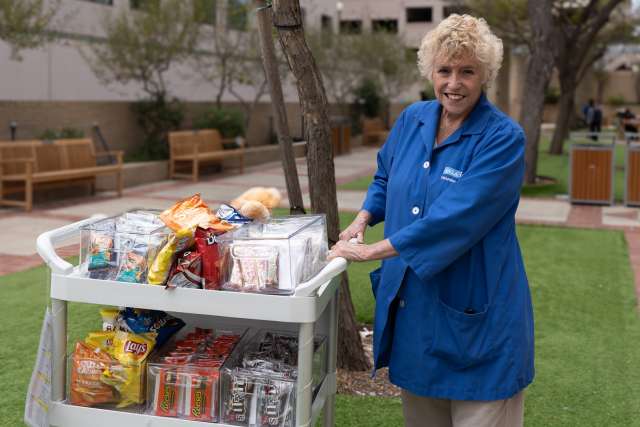There are an estimated 5.5 million Americans living with Alzheimer’s disease, the most common type of dementia. As that number grows over the next few decades, health care organizations will need to develop better ways to serve people with dementia and the family members who care for them.
Various approaches have been taken to manage the care of those with dementia, but there is not a consensus on which ones are the most effective. To help address this issue, the UCLA Division of Geriatrics has received a five-year, $13.6 million award from the Patient-Centered Outcomes Research Institute to compare care delivered through a health system with care that occurs in a community-based setting.
“Whether a care team working within the health system can do a better job than a community-based care manager in coordinating the health and social needs of persons with dementia and their families is a fundamental, unanswered question,” said Dr. David Reuben, Archstone Professor of Medicine and chief of the UCLA Division of Geriatrics, who will lead the study.
Researchers will recruit 1,534 participants with dementia at four U.S. sites who will receive 18 months of care in either a health system-based or community-based dementia care system. Within a health system setting, dementia patient care is typically overseen by dementia care managers who have access to medical records, primary care physicians and consultants. Within a community-based system, care managers have ready access to community-based services to support caregivers and provide extensive training.
The researchers will track measures such as the behavior of the patients and the effects on caregivers, such as distress and depression. They will also assess long-term nursing home placement and days spent at home at the end of the study. In addition, patients and caregivers will be asked to identify their most important goal and assess their progress toward meeting it.
“This project was selected for PCORI funding for its scientific merit and commitment to engaging patients and other health care stakeholders in a major study conducted in real-world settings,” said Dr. Joe Selby, the institute’s executive director. It also has potential to answer an important question about dementia care and fill a crucial evidence gap. “We look forward to following the study’s progress and working with UCLA to share its results,” he said.
Reuben’s study was selected for funding through the institute’s Pragmatic Clinical Studies Initiative, an effort to produce results that are broadly applicable to a diverse range of patients and care situations and can be more quickly taken up in routine clinical practice.
Many clinical studies test whether a treatment works under ideal conditions in specialized research centers, but health care is rarely delivered in such idealized situations and settings. Pragmatic clinical studies test a treatment’s effectiveness in “real-life” medical practice situations, such as typical hospitals and outpatient clinics, and also can include a wider range of study participants, making their findings more generally applicable.
Patient-Centered Outcomes Research Institute is an independent, nonprofit organization authorized by Congress in 2010. Its mission is to fund research that will provide patients, their caregivers, and clinicians with the evidence-based information needed to make better informed health care decisions.



